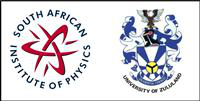Speaker
Apply to be<br> considered for a student <br> award (Yes / No)?
No
Would you like to <br> submit a short paper <br> for the Conference <br> Proceedings (Yes / No)?
Yes
Abstract content <br> (Max 300 words)
We report on the results of a mathematics entry test given to 160 first year students of the 2013 intake enrolled for an introductory physics course (non-major) in the Faculties of Science and Health Sciences at the University of Johannesburg. The test was written without the use of calculators and was based on grade eleven and grade twelve syllabi. The test aimed at assessing the background knowledge and mathematical skills deemed to be necessary for the students to successfully undertake a non-calculus-based first year physics course.
On comparison of the entry test marks with the matric marks for mathematics, it has become apparent that the latter are inflated and reflects neither the real skills nor the success rate of students at university level. Comparison between the class average of the test (45%) and the class average of the mathematics matric marks (65%) and also the correlation analysis between the individual marks serves as proof. Moreover, the use of calculators from an early age has undermined the capability of students to solve even simple numerical expressions containing exponents, square roots and priority of multiplication and division over addition and subtraction. The analysis of the most common misconceptions and mistakes will be reported in detail.
It is well documented in literature that a solid mathematical background is an indispensable prerequisite for success in physics learning. The results of this mathematics test already show a good correlation with the physics marks in the first term of 2013 academic year. We are thus inclined to consider this as predictive of the academic success in our physics module. However, the June 2013 exam marks are required to establish this.

